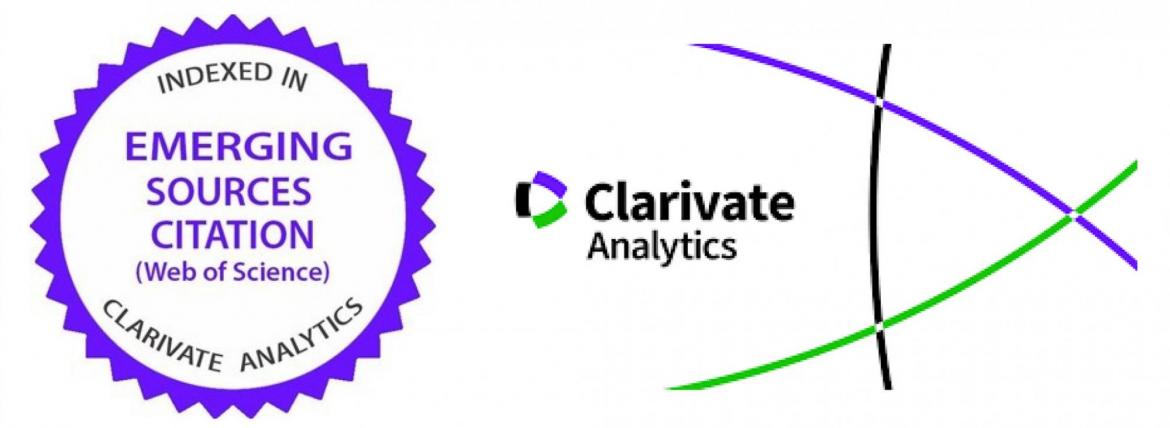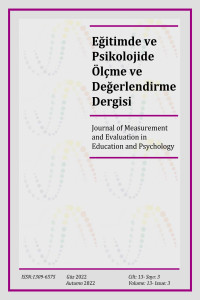We are pleased to announce a new special issue on "Opportunities and Challenges of AI in Educational Assessment". See "Announcements" for details.
Please visit the updated "Author Guidelines" before submission.
JMEEP is a quarterly journal focusing on methodological studies that will contribute to the development of measurement theory and innovative studies that aim to find solutions to the problems in practice based on measurement theories. Studies aiming to contribute to the quantitative research methodology are expected not only to apply an advanced statistical method in a data set, but also to be structured in a way with high generalizability.JMEEP only publishes articles in English.


Research Article
Info


Specıal Issue on "Opportunıtıes and Challenges of AI ın Educatıonal Assessment"
Call for Papers: Special Issue on "Opportunities and Challenges of AI in Educational Assessment"
Journal Name: International Journal of Measurement and Evaluation in Education and Psychology
Special Issue Editors: Kadriye Ercikan, Ph.D., Alper Sahin, Ph.D. & Nathan Thompson, Ph.D.
Proposal Submission Deadline: April 1, 2024
Introduction:
As the digital landscape continues to evolve, the intersection of Artificial Intelligence (AI) and education emerges as a transformative frontier. In this era of technological innovation, the opportunities presented by AI in educational measurement are both profound and far-reaching. This special issue seeks to unravel the multifaceted ways in which AI can revolutionize educational assessments, contributing to the advancement of pedagogical methodologies and the understanding of student learning outcomes. By exploring the intricate connections between AI and educational measurement, we aim to foster a deeper understanding of the potential benefits, challenges, and ethical considerations that accompany this paradigm shift.
Topics of Interest:
This special issue invites submissions that delve into the diverse facets of AI implementation in educational measurement. We encourage authors to explore, but not limit themselves to the following topics:
⮚ Adaptive Testing and Personalization: Investigating AI-driven adaptive testing models that cater to individual learning styles, fostering a more personalized and effective educational experience.
⮚ Machine Learning for Holistic Grading: Delving into the use of machine learning algorithms to assess both objective and subjective aspects of student performance, providing nuanced and comprehensive grading.
⮚ Educational Data Mining for Insights: Harnessing the power of AI in analyzing extensive educational datasets to uncover patterns, trends, and insights that inform instructional strategies and educational policies.
⮚ Natural Language Processing (NLP) Applications: Exploring how NLP techniques can enhance the evaluation of written and verbal communication skills, bringing a new dimension to language-based assessments.
⮚ Gamification and AI Synergy: Investigating the fusion of AI algorithms with educational games and simulations to create engaging and immersive assessment environments that stimulate effective learning.
⮚ Ethical Considerations in AI-driven Assessments: Scrutinizing the ethical implications and considerations surrounding the integration of AI in educational measurement, with a focus on fairness, bias, and privacy concerns.
⮚ Innovative AI-driven Assessment Models: Introducing and examining novel AI-driven assessment models that go beyond traditional methods, encouraging innovative approaches to measurement and evaluation.
⮚ Other. Other topics related to innovative AI use in Educational Assessment.
Submission Guidelines:
STEP 1. Prospective authors are invited to fill in the Article Proposal in the link below and wait for a response from the Special Issue Editors.
https://shorturl.at/acfWZ
STEP 2. After the notification of acceptance for submission Prospective authors are invited to submit their manuscripts following the journal's guidelines. https://dergipark.org.tr/en/pub/epod/writing-rules. All submissions will undergo a rigorous peer-review process.
IMPORTANT NOTE : Manuscripts should be submitted through the journal's online submission system, indicating that they are intended for the special issue on "Opportunities and Challenges of AI in Educational Assessment".
Important Dates:
Proposal Submission Deadline: April 1, 2024
Notification of Acceptance for Submissions: May 1, 2024
Full Manuscript Submission Deadline: August 1, 2024 (Articles can still be submitted even if a proposal was not submitted)
Reviews: August 1, 2024 - October 15, 2024
Decisions to be Sent: October 15, 2024
Revisions : October 15, 2024 - December 1, 2024
Revised Manuscript Submission: December 1, 2024
Final Decisions : December 23, 2024
Publication of Special Issue: December 30, 2024
Guest Editors:
Kadriye Ercikan, Ph.D., kercikan@ets.org
Vice President of Research, ETS
Alper Sahin, Ph.D., alpersahin2@yahoo.com
Chairperson, Department of Basic English, Atilim University
Nathan Thompson, Ph.D., nthompson@assess.com
CEO, Assessment Systems Corporation
Inquiries:
For any inquiries regarding the special issue, please contact Alper Sahin, Ph. D
We look forward to receiving your innovative contributions and advancing the discourse on the transformative role of AI in educational measurement.
Sincerely,
Kadriye Ercikan, Ph.D., Alper Sahin Ph.D. & Nathan Thompson, Ph.D.
Special Issue Editors
Journal of Measurement and Evaluation in Education and Psychology

